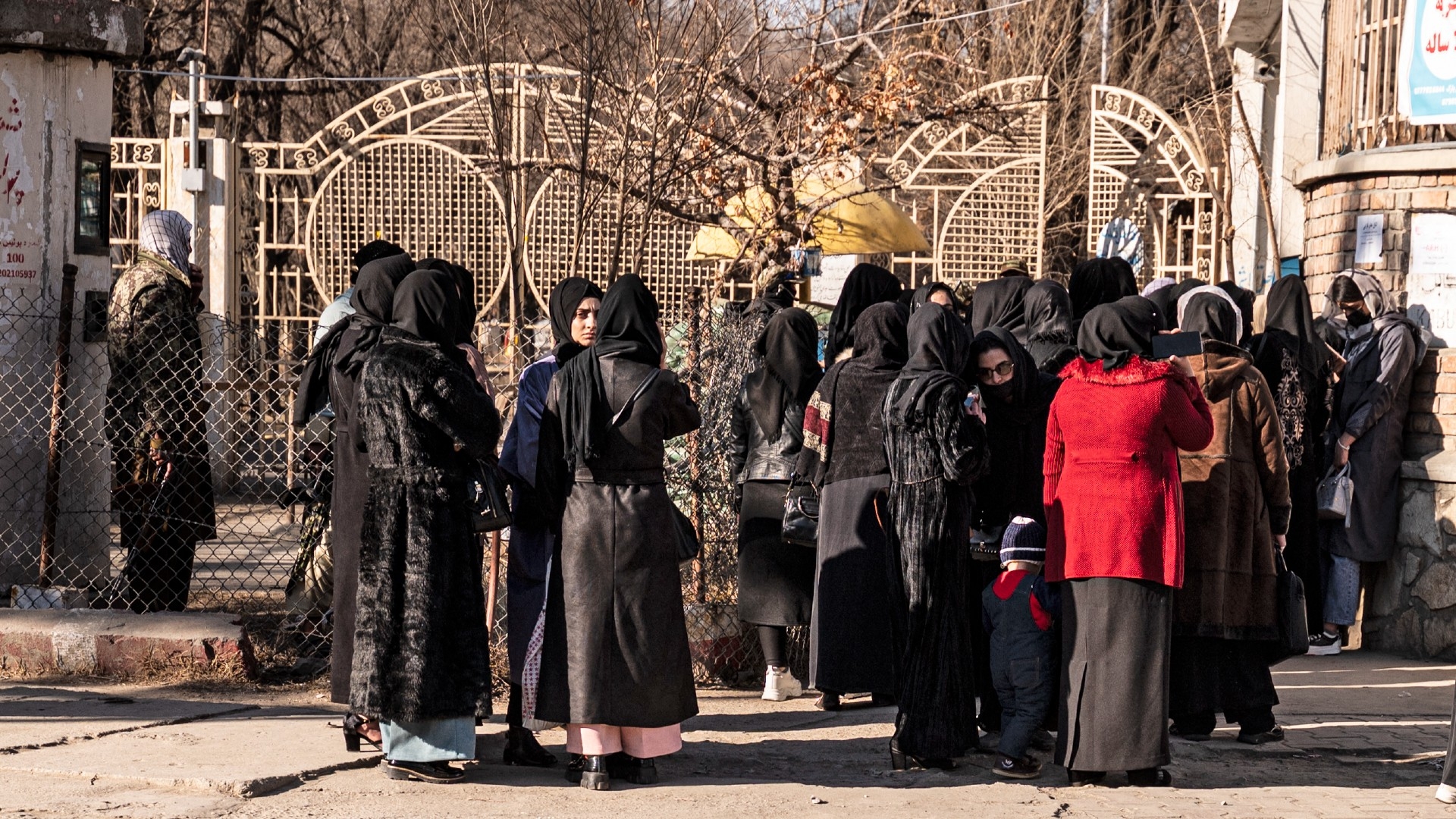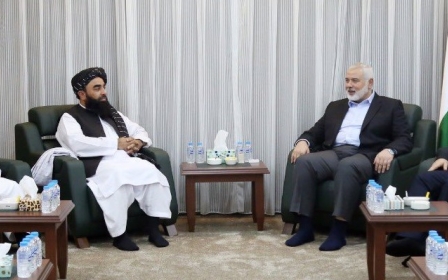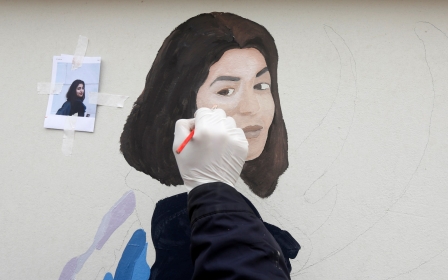Afghanistan: Middle East states condemn Taliban block on women going to university

Saudi Arabia, Qatar and Turkey are among several countries to condemn the Taliban after it announced that women would be suspended from attending universities in Afghanistan.
Female university students were turned away on Wednesday after academic institutions were sent a letter by the Afghan higher education ministry on Tuesday evening enforcing the decision.
The move was widely condemned by governments around the world, including in the Middle East.
Saudi Arabia’s foreign ministry expressed “surprise and regret” on Wednesday, calling on Kabul to reverse the latest move.
New MEE newsletter: Jerusalem Dispatch
Sign up to get the latest insights and analysis on Israel-Palestine, alongside Turkey Unpacked and other MEE newsletters
The United Arab Emirates' deputy ambassador to the UN, Amiera al-Hefeiti, strongly condemned the decision during a session on Afghanistan on Tuesday.
The Emiratis have emerged as a key ally of the Taliban administration, cultivating close ties to the Haqqani network - a powerful faction within the movement that some have described as “kingmakers” in Kabul.
Meanwhile, Ibrahim Kalin, Turkey’s presidential spokesperson, tweeted that the ban was “against the spirit of Islam” and had “no place in religion”.
Doha 'deeply disappointed'
Qatar, which has played a key role as a mediator between the Taliban and the US, released a statement expressing “deep concern and disappointment”.
“These negative practices will have a significant impact on human rights, development, and the economy in Afghanistan,” Doha's foreign ministry said.
“As a Muslim country in which women enjoy all their rights, especially education, the state of Qatar calls on the Afghan caretaker government to review its decision in line with the teachings of the Islamic religion concerning women’s rights.”
The remarks echo similar condemnations made by Doha after girls were banned from Afghan secondary schools last year.
In September 2021, just weeks after the Taliban seized control of Kabul, the group refused to allow girls to resume high school education. Touted as a temporary decision, the return to school has been repeatedly delayed.
In August, Middle East Eye reported that scores of female Afghan students were prevented by the Taliban from boarding a flight to Qatar, where they had sought to continue their studies.
Several Taliban leaders have sent their own daughters to schools and universities abroad, particularly in Qatar, leading to frequent accusations of double standards.
Abdel Aziz Hamad Aluwaisheg, assistant secretary general of the Gulf Cooperation Council, tweeted on Thursday: “Banning the education of girls 16+ is a clear violation of human rights, but it can also doom the economic future of Afghanistan, relegating half of its people to a life of poverty and ignorance.”
Middle East Eye delivers independent and unrivalled coverage and analysis of the Middle East, North Africa and beyond. To learn more about republishing this content and the associated fees, please fill out this form. More about MEE can be found here.




